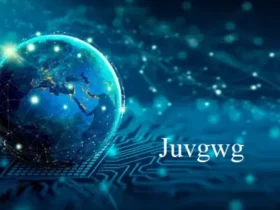“Compliancia” stands as the symphony of an organization’s dedication to harmonizing with and embracing applicable rules, regulations, standards, and ethical precepts. It embodies a commitment to responsible and lawful conduct, extending across vital domains like governance, risk management, regulatory compliance, ethics, and data privacy. For businesses sculpted in the art of good governance and ethical integrity, the orchestration of an effective compliância program becomes not just imperative but a virtuoso performance in the grand theater of corporate responsibility.
What exactly is compliância?
compliância entails developing policies, processes, and controls to assure the integrity of corporate operations and compliance with industry regulations. This helps to prevent legal consequences, reputational harm, and financial penalties that might occur from non-compliância. It serves as a basis for operational excellence and the maintenance of stakeholder confidence.
What is the significance of compliância?
Compliance is essential for every business that aspires to conduct itself responsibly and avoid the harsh penalties of infractions. Companies may gain credibility, manage risks effectively, and encourage sustainable practices by incorporating compliância into their strategy and operations.
compliância’s Key Aspects and Principles
To truly comprehend compliância, you must first grasp the main elements that make it function.
Key Concepts
compliância is founded on a few fundamental principles:
- Sincerity: In all of your commercial interactions, act with honesty, fairness, and transparency. This includes avoiding dishonest techniques, acknowledging hazards, and communicating and selling truthfully.
- Responsibility: Accepting responsibility for your actions and decisions and being willing to face the consequences. This includes offering warranties, guarantees, and return policies for your goods and services.
- Observance: Following all applicable rules, regulations, and ethical standards in your business. Environmental legislation, labor laws, safety requirements, or industrial restrictions might all fall under this category. Failure to comply might result in legal consequences, penalties, and reputational harm.
Important Procedures
compliância’s main procedures include: o Conducting regular audits and risk assessments to identify areas of non-compliance
- Implementing strict regulations, controls, and procedures to govern employee conduct
- Ongoing training and education to develop an integrity and compliance culture
- Constant monitoring and assessment of operations to discover and correct problems as they arise.
- If noncompliance occurs, remedial actions must be taken quickly, fairly, and transparently.
compliância is all about adhering to these values and putting them into effect. When done correctly, it fosters trust in your company and contributes to long-term success.
The Importance of compliância
Emerging trends will affect the landscape in the future:
Machine learning and AI
To detect possible noncompliance, sophisticated algorithms can anticipate hazards and analyze massive datasets
Increased fines and enforcement
Regulators will increase their vigilance, and firms will risk increased penalties and punishments for infractions.
Increased international cooperation
To promote compliance, data privacy norms, and industry requirements will be aligned across borders.
Conclusion
Compliancia lays the groundwork for ethical, well-governed businesses that build stakeholder confidence via responsible operations. Organizations may efficiently satisfy legal obligations and moral imperatives by integrating them into operations and culture and employing technology. Despite its complexity, a persistent focus on compliância eventually promotes long-term growth and brand integrity.









Leave a Reply